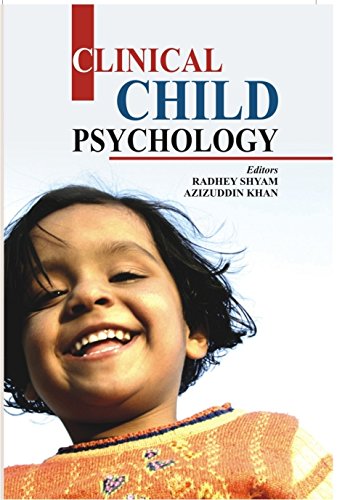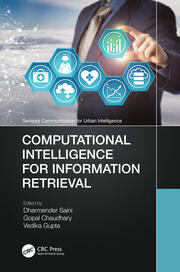Publications
| Journal |
| Chapter |
| Books |
| Edited Book |
JOURNAL
'Peer Reviewed
• Garg P & Khan, P. (2023). Validation of Cognitive and Affective Mindfulness-Revised Scale for Medical Practitioners: Traces from the Indian Sample, 44th EBES Conference, 1062-1095.
• Dehnavi. F., & Khan, A. (2023). Time-Based and Event-Based Prospective Memory in Adults with Autism Spectrum Disorder: A Virtual Week Investigation. Journal of Autism and Developmental Disorders 53 (5), 1-9.
• Backhaus, I. (2023). .Mental Health, Loneliness, and Social Support Among Undergraduate Students: A Multinational Study in Asia. Asia Pacific Journal of Public Health, 1-7.
• M Alzyoudi, Y Albustanji, A Khan, K Al Mazroui. (2022). Phonological Process in Arabic-Speaking Children with Down Syndrome: A Psycholinguistic Investigation. Africa Education Review, 1-14. • Kumar, A., Varshney, Y., Gupta., & Khan, A. (2022). Effectiveness of Intervention for Improvement of Reading Ability by Combining Visual and Haptic Modality. Journal of Research in Reading.
• Redkar, M., Khan, A. (2022). Prospective Memory and Poly-Cystic Ovarian Syndrome and Among Woman in Tribal Population of India: An Empirical Investigation. Health Care for Women International,
• & Khan, A. (2022). Code switching among multilingual university students in Kazakhstan Evidence from a mixed-methods study. Journal of Psycholinguistic Research.
• Mishra, A, & Khan, A. (2022). Domain-General and Domain-Specific Cognitive Correlates of Developmental Dyscalculia: A Systematic Review of Last Two Decades Literature. Child Neuropsychology.
• Sharma, S.N., & Khan, A. (2022). The interactive effect of time pressure and incidental emotion on intertemporal choice. Journal of Risk and Uncertainty (Submitted).
• Hasan, A., Khan, A, & Khan, A. (2022). Parasocial Relationships and Repeated Viewing of YouTube and TV Channels: A Mediated Moderated Framework
• Khan, A. (2022). " Effect of Extreme Environment and Isolation on Subjective Time Estimation in Antarctica During Summer: A Cross Sectional Investigation. EcoPsychology, (Under review).
• Nanditha, K., & Khan, A. (2021). Response Inhibition and Neurological Soft Sign among Children with Attention Deficit and Hyperactivity Disorder, Polish Psychological Bulletin (Under view
• Khan, A. (2021). Prospective Memory Performance and Emotional Regulation During Wintering at Bharati Station in Antarctica, Polar Science (Accepted).
• Prabir G. D., & Khan, A. (2021). Do Penguins Possess Self-Awareness and Social Instincts? The First study in Natural Environment of Antarctica. Animal Cognition. Under-review (First revision). ANCO-D-20-00281.
• Garg, P., & Khan, A. (2021). Mindfulness as a Function of Stress Resiliency and Psychological well-being: Building an Empirical Case of Medical Practitioners. Journal of Advances in Management Research.
• Sharma, S. N. & Khan, A. (2022). Self-other differences in intertemporal decision making: An eye-tracking investigation. Consciousness and Cognition. 102, 103356. https://doi.org/10.1016/j.concog.2022.103356
• Ahmad Mir, F., & Khan, A. (2022). The Role of Proficiency in Kashmiri Language in Phonological Processing Skills: A Cognitive-linguistic Approach. East European Journal of Psycholinguistics, 9(1). https://doi.org/10.29038/eejpl.2022.9.1.ahm.
• Warda, S., & Khan, A. (2022). Interval Timing in a Hierarchical Violation of Expectation Task: Dissociating Local and Global Predictions in Perceived Time, Attention, Perception, & Psychophysics (Accepted).
• Hasan, A., Nair, Ranjit., & Khan, A. (2022). Analyzing Hate Speech Against Migrants and Woman through Tweets Using Deep Learning Model. Computational Intelligence and Neuroscience. Article ID 8153791, https://doi.org/10.1155/2022/8153791. IF 4.40.
• Varshney, Y.V., & Khan, A. (2022). Decoding Imagined speech of phonetically distributed words using EEG, Frontiers Signal Process. - Biomedical Signal Processing, https://doi.org/10.3389/frsip.2022.760643
• Varshney, Y.V., & Khan, A. (2021). Audio assisted EEG segmentation for training of Imagined speech classification mode. Proc. of the International Conference on Electrical, Computer and Energy Technologies (ICECET) 9-10 December 2021, Cape Town-South Africa
• Sharma, S. N. & Khan, A. (2021). Intertemporal preference reversals are associated with early activation of insula and sustained preferential processing of immediate rewards in visual cortex. Scientific Reports 11, 22277 (2021). https://doi.org/10.1038/s41598-021-01579-7.
• Khan, A., Khasanova, K.., & Akhmedova, S.B. (2021). Assessing the quality of education through the Eyes of students during a Pandemic. The American Journal of Social Science and Education Innovations, 3(9), 5-7.
• Girnyk, А.М., Krylova-Grek Y.M., & Khan, A. (2021). Concept of Conflict in India and Ukraine: Psycholinguistic Approach to Comparative Cultural Studies, East European Journal of Psycholinguistics. Vol 8 (2).
• Mandal, M & Khan, A. (2021). Attention switching deficit in patients of Parkinson’s disease who experience freezing of gait, Applied Neuropsychology: Adult, DOI:10.1080/23279095.2021.1951268.
• Fazli, S., Chaudhari, P., & Khan, A. (2021).Effect of risk perception, perceived susceptibility and trustworthiness of information sources on maladaptive behavioural during COVID-19: An investigation of psychological well-being. Journal of Psychosocial Well-being. Vol-2 (1).
• Mandal, M., & Khan, A. (2021).Cognitive assessments in Parkinson’s disease: A review of a decade. Science, Technology and Development, 189-196.
• Hasan, A., Pandey, D. & Khan, A. (2021). Application of EEG Time-Varying Networks in the Evaluation of Dynamic Functional Brain Networks. Augment Hum Res 6, 8 (2021). https://doi.org/10.1007/s41133-021-00046-2.
• Mandal, M., & Khan, A. (2020). Freezing of gait in Parkinsons disease: A sustained attention failure. Parkinsonism & Related Disorders, 79(1), e24. https://doi.org/10.1016/j.parkreldis.2020.06.110.',
Books
1. Khan, Azizuddin (2011). Prospective Memory: Realization of Delayed Intention. University Book House Publication, Jaipur, Funded by Indian Council of Social Science (ICSSR), New Delhi.
2. Husain, Akbar., Khan, Azizuddin., Kirmani, M.N., & Khatoon, Z. (2020). Psychological Perspectives in Islam and Sufism. Global Vision Publishing House, ISBN-10: 8194771668; ISBN-13: 978-8194771661.
Edited Books
Shyam R & Khan Azizuddin (2009). Clinical Child Psychology, Kalpaz Publishing House, New Delhi.
CHAPTER
Edited Book
• K.K. Sarna., Khan, A., Khan, W., & Saini, S. (2023). Neurocognitive Underpinning of Neurological Disorders: Role of Default Mode Network. Hormone Related Cancer Mechanistic and Nanomedicines: Challenges and Prospects (Edited). ISBN-13:9789811955570, Publisher: Springer Nature Singapore.
• Husain, A., & Khan, A. (2022). Emotion Prediction through EEG recordings using Computational Intelligence. Computational Intelligence for Information Retrieval.CRC Press, Tayler & Francis. ISBN 9780367680800.
•Sharma N., Khan A. (2021). Assessing Relationship Between Drivers Behavior and Cognitive Failure-Categorizing Sub-groups of Drivers.
• Mora-Fernandez J., Khan A., Estévez F., Webster F., Fárez M.I., Torres F. (2020) IMotions’ Automatic Facial Recognition
& Text-Based Content Analysis of Basic Emotions & Empathy in the Application of the Interactive Neurocommunicative Technique LNCBT (Line & Numbered Concordant Basic Text). In: Duffy V. (eds) Digital Human
Modeling and Applications in Health, Safety, Ergonomics and Risk Management. Human Communication, Organization and Work. HCII 2020. Lecture Notes in Computer Science, vol 12199. Springer Nature, Cham.
• Pereirs, D., & Khan, A (2016).Brain lateralization of emotional processing in depression. In Depression, Edited by DagmarBreznoÅ¡ÄákováINTECH Publishing, Crotia.
• Kapoor, H. & Khan, A. (2015). Double negatives: The Dark Triad and negative creativity. In F. Reisman (Ed.), 2015 KIE Handbook of Creativity: Research Papers on Knowledge, Innovation and Enterprise, Volume III(pp. 98--113). Istanbul, Turkey.doi:10.13140/RG.2.1.1809.3925
Kapoor, H & Khan, A. (2015). THE Dark Triad and Negative Creativity,KIE Handbook of Creativity, 98-113.
• Khan, Azizuddin (2009. DevelopmentalDyslexia: Current Scenario (Eds.), Kalpaz Publishing Publishing House, New Delhi.
• Khan, Azizuddin & Khan A (2009.Cognitive Style and Mentoring: An Approach for Organizational Development (Eds.), Global Publishing House, New Delhi.
• Khan, Azizuddin, Qazi T, & Khan A (2008.Cognitive Skills in Sport Performance (Eds.), Global Vision Publishing House, New Delhi.
• Khan, Azizuddin, Qazi T, & Khan A (2007.Psychological Disease and Immune Function: Psychoneuroimmunological Perspective (Eds.), Global Vision Publishing House, New Delhi.
• Hussain, Khan, Azizuddin. & Ahuja R. (2005). Stress: An Overview, Human Stress Management (Eds.), Global Vision Publishing House, New Delhi.
-
-
 Nº1
Nº1
-
-
 NEW
NEW
Translation
Dehnavi, Frangis & Khan, Azizuddin (2020). Event Related Potential Technique, Sanjesh & Danesh Publication Co. Tehran Province, Tehran, Iran
Webinar
Khan, A. (2021). “Human Food Choice: Cognition, Biology, or Culture? Two-day Virtual Young
Graduate Meet 2021 “Social Geographies of Food” School of Humanities and Social Sciences, IIT
Mandi, 29 – 30 May 2021.
Khan, A. (2021). Covid-19 and Mental Health: Impact, Problems, Management. 5-day Mental Health
Management in Covid-19” hosted by the Department of Psychology at Aligarh Muslim University
(AMU) June 22-26, 2021.
Khan, A. (2020). Effect of Quarantine, Social Distancing and Self Isolation during Covid-19
Pandemic: Intervention and Management, Webinar on ‘Reformulation of Self-concept, Social
Consciousness and Social Harmony in Context of Covid-19’at Munishwar Dutt Post Graduate
College, Pratapgarh, UP. June 12-13, 2020.
Khan, A. (2020). Depression: Recognition and Management, Department of Basic Education, Kanpur
Nagar, Kanpur October 10, 2
Co-Guide out Side of the IIT Bombay
Shahzoda Axmedova, Faculty of Education, Samarkand State University, Uzbekistan “Innovative
approach to improve the system of educational quality assessment”
(PhD candidate, Ongoing)
Farruk Mir, Department of Linguistics, AMU, Aligarh,” Phonological processing among illiterate: A
psycholinguistics perspective” (PhD Completed& defended August, 2020)
Sharika Hasan, School of Business Studies, Islamic University of Science and Technology, Kashmir,
“An Empirical Study on Investor’s Behavior Towards Mutual Fund Investment”.
(PhD Completed &
defended July, 2020)
Post Doc Fellow
Yash Vardhan Varshney, ‘Imagined Speech’ from July 2020- December 2021.
Dr. Jasmine Kaur Dhall, "Juvenile Criminal Behavior in India: A Holistic Assessment and a Predictive
Modeling Study" from July 2015 to June 2016.
Stephan Alice Baker (Australia), Emotions, Katharsis and Collective Fusion in Indian Context from
November 25, 2009 to May 24, 2010.
Thesis Supervision: (M. Tech)
Amit Kumar (173100031). “Development of Multisensory technique for intervention of developmental dyslexia: An electrophysiological and behavioural approach”. (2017-2019). Completed.
Thesis Supervision: (M. Phil)
Akash Shekapure (208080010). Work from Home Experiences of Persons with Physical disabilities in
the Mumbai & Thane area”. (2020-2022). Completed.
Neelam Lakra (208080005), “A Comparative Study of School Readiness and Quality of Education in
Government and Private Pre-School”. (2020-2022), Completed.
Fazli Salim (198080001), Environment Risk Perception and decision making, 2019-21(Completed).
Anupam Sharma (158080005), An Investigation into the relationship between Cognitive Styles,
Personality and Multimedia Learning Preference among College students, 2017-2019 (Completed)
Sohinee Ganguly, Stress and its Consequences in Undergraduate at IIT Bombay, 2008 (Completed)
Co-guide with Prof. Pooja Purang.
Thesis Supervision: (Ph. D)
Varsha Singh, Testing Asymmetry in Rewardand Punishmentin IOWA Gambling Task (IGT): An Empirical Investigation,(Completed, 2011).
Sanjram Premjit Khanganba, Effect of Chronocity and Expertise on Prospective Memory in Multitask
Situation, (Completed, 2012).Co-guide Prof. Meenakshi Gupta.
Junnarkar Mohita Anant Vaishali : An Investigation into Eyewitness Testimony in Indian Context: An
Empirical Investigation,(Completed, 2013).
Pereira Danielle Vivian Sharon, Emotional dysregulation and cognitive distortion in depression: An
electrophysiological and behavioral investigation. Completed (2017).
Hansika Kapoor, Psychophysiological study of decision making in medical cognition (Malevolent
creativity). Completed (2018)
Purnima Bajre, An investigation into Hindi speaking dyslexic children. Completed (2019)
Moulika Mandal, Cognitive correlates of Parkinson’s disease (Completed 2020)
Sathya Narayana Sharma, Cognitive, Contextual, and Neural Predictors of Intertemporal Choice:
Behavioural and Electrophysiological Investigations (Completed 2021)
Frangis, D. Executive function in Autism.
Shamini Warda, Repetition and Expectation in Time Estimation
Ankit Mishra, Developmental Dyscalculia
Maitreyi Redkar, Poly Cystic Syndrome and Depression
Vinay Krishna: Fairness and Decision Making
Anamika Banerjee, Mild cognitive impairment and Alzheimer Disease
Juilee Lele, Weapon effect and Eyewitness testimony
Yengisetty Eswar Naveen,
Vanita Sharma, Cognition and Autism

